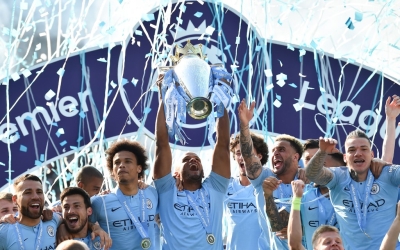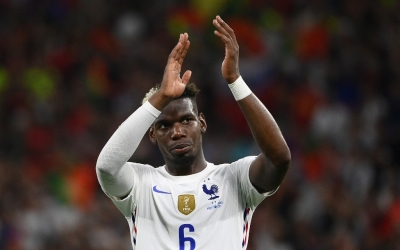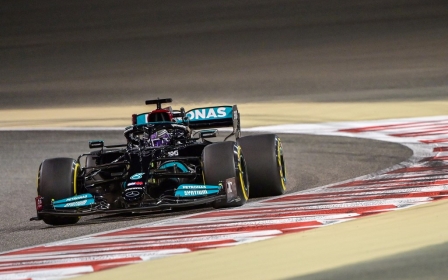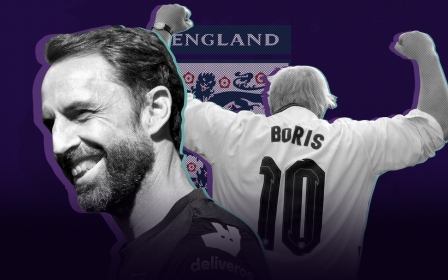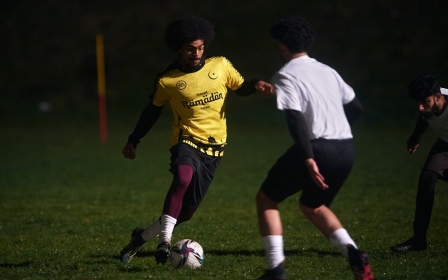Euro 2020: Will we see more Muslim footballers succeeding in England?
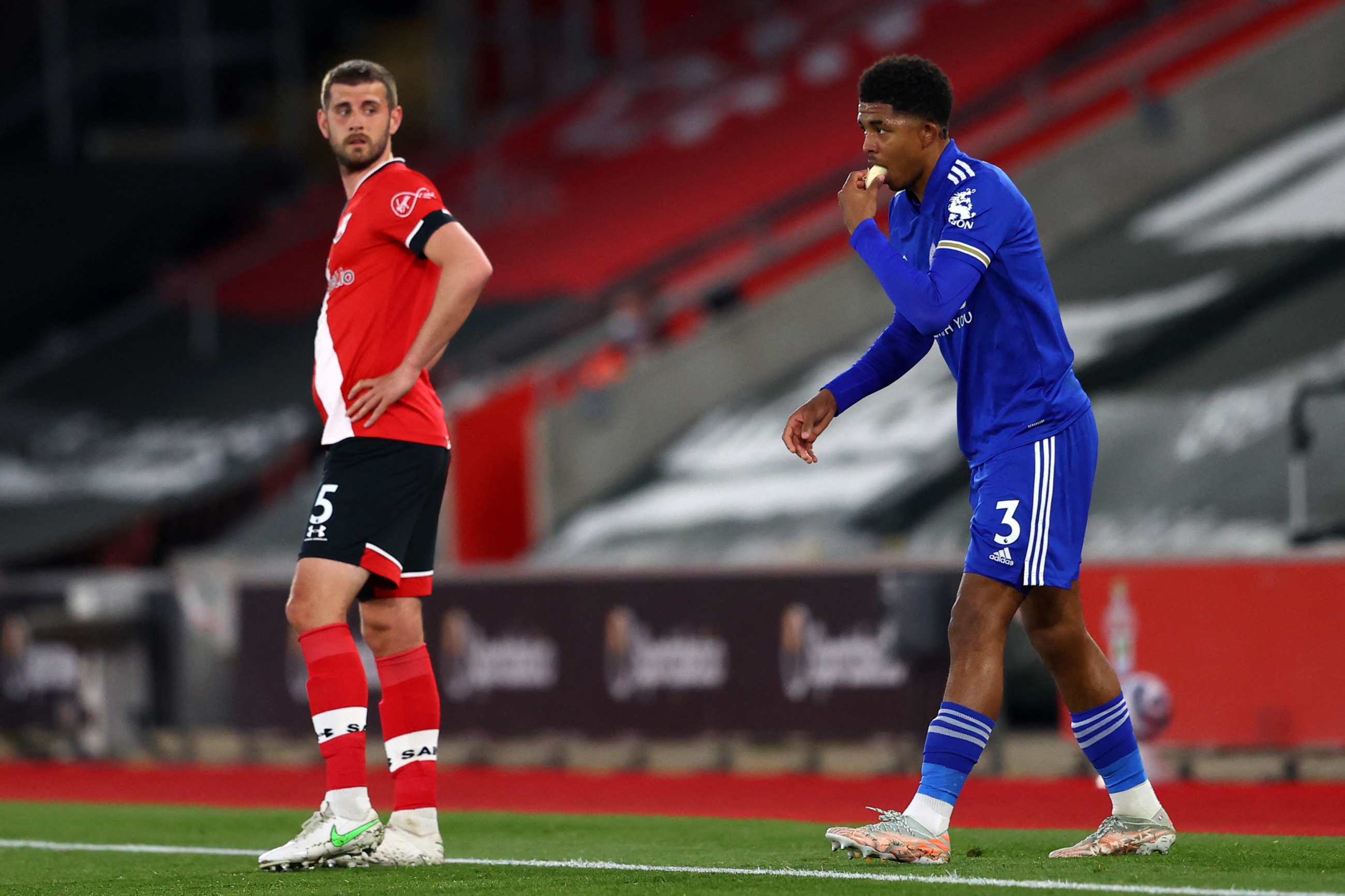
Euro 2020 may have come a year late due to the pandemic, but it proved to be a dramatic, eventful and significant affair - on and off the football pitch.
Italy overcame England in a tense penalty shootout on Sunday night, in a final later marred by the racist abuse levelled at three Black English players.
While the incident proves how long there is to go in tackling discrimination, the English national team has been hailed a success for bringing the country together. This young, humble and talented squad - many of whom have not been afraid to speak out on social issues - have been seen and embraced by communities that have not always felt welcomed by football fans.
Among those cheering them on were members of the Muslim community.
A clip of Muslim boys at an Islamic boarding school crowding round a laptop and cheering wildly as Harry Kane scored the winning goal in the semi-final went viral last week. As did a Twitter thread describing how three hijabi women felt represented by the “anti-racist, inclusive” England side.
New MEE newsletter: Jerusalem Dispatch
Sign up to get the latest insights and analysis on Israel-Palestine, alongside Turkey Unpacked and other MEE newsletters
The national team is helping millions of people feel included, but will this translate into Muslims succeeding and competing at the highest level of English football?
For Ebadur Rahman, the founder of Nujum Sports, a UK-based organisation set up to help Muslim athletes thrive, it's a matter of when, not if.
“British Muslim footballers can go all the way”
“I do believe firmly that the conditions are right for British Muslim footballers to go all the way,” Rahman tells Middle East Eye. “It won’t be long until we see [them] playing for England.”
Previously employed by the English Football Association (FA), Rahman set up Nujum during the coronavirus lockdown after a phone call with his close friend, former Blackburn Rovers and Middlesbrough striker Rudy Gestede.
Gestede wanted to be put in touch with the Zimbabwean Muslim cleric Mufti Menk, to talk about sport and faith. The request sparked Rahman to host a wider virtual discussion with Menk on Zoom, which attracted nearly 30 athletes. From there, a new Muslim athletes advocacy organisation was born.
As one of its first initiatives, Nujum sent gift packages filled with dates, perfume, honey and Zamzam water to over 200 Muslim footballers in the UK during the holy month of Ramadan.
Among those to receive the packs were Arsenal’s Mohamed Elneny, Wolves winger Adama Traore and West Ham women’s striker Nor Mustafa.
The project was accompanied by workshops delivered to clubs about how to best serve the needs of Muslim athletes during the fasting month of Ramadan.
“We realised quickly that there’s no guidance,” Rahman said. “In May, I got an email from Southampton FC that they’re opening a prayer room in the training ground, and they wanted specs from us about the wudhu (abolution) area and where to buy carpets. It got me thinking that clubs have nowhere to go for help on these issues.”
Muslim athletes charter launched
While Muslim footballers like Mohamed Salah, Sadio Mane and Frederic Kanoute have starred in the English Premier League for a number of years, no official guidelines had ever been put into place to look after their religious needs.
“If a player goes into pre-season and they have halal food and a prayer room, and don't have to worry... these little things will make them play a lot better,” Rahman says.
“I’m aware of clubs and players in League Two who don’t have halal food so have to have packed lunches. That shouldn’t be happening.”
To fill that gap, last month Nujum launched the first ever Muslim athletes charter: a ten-point pledge for clubs to adopt best practices to help support their players.
The pledges touch on several issues, including prayer spaces, provisions of halal food, non-consumption of alcohol, fasting during Ramadan, and ethical clothing.
The charter has already been adopted by a growing number of clubs across all levels of English football, including Premier League teams Watford and Brentford.
Alcohol, gambling and fasting
One of the ten points compels clubs to be informed about Muslim athletes not drinking alcohol, and particularly for this to be taken into consideration during celebrations.
The issue of alcohol came to a head during Euro 2020 when French Muslim footballer Paul Pogba removed a bottle of Heineken beer from a collection of drinks placed in front of him by sponsors during a press conference.
The snub forced the tournament's organisers to confirm that footballers could object to having alcohol-associated brands placed next to them on religious grounds.
Rahman noted that progress had already been made on this front, with English tournaments such as the FA Cup and Carabao Cup using non-alcoholic champagne during trophy ceremony celebrations.
The charter also commits clubs to providing alternative clothing to athletes who feel that any kits contradict their spiritual or ethical beliefs.
This will undoubtedly be of relevance when it comes to gambling: a key corporate industry for football, but one which promotes a lifestyle prohibited in Islam. Eight of the Premier League’s 20 clubs currently have gambling sponsors on the front of their shirts.
“We’re speaking to a gambling charity who were very pleased with our charter,” Rahman said. “In the meantime, we’re looking at asking clubs not to enforce Muslim players wearing gambling sponsors.”
For many Muslim athletes in the UK, the new charter has sparked important conversations about sport and spirituality.
“I think this charter will be very important for upcoming Muslim footballers because some people are uncomfortable to talk about their religion,” Ipswich Town midfielder Idris El Mizouni told Middle East Eye.
“Nujum helped me to feel like other people are here for me when needed and to learn more about the religion.”
The footballer, who has represented Tunisia internationally, explained that his teammates and staff at Ipswich had asked questions to understand more about Islam, and particularly helped him while he was fasting.
“The club has been great about Ramadan. They understand my faith and just try to help give advice on what to eat and when.”
World Cup in Qatar
In the long run, Rahman hopes to help footballers at an international level, particularly in the run up to the World Cup in Qatar next year.
Doha has been in the spotlight over its hosting of the World Cup, with football fans and activists raising concerns about human rights abuses in the kingdom, particularly in relation to migrant workers.
This week, Qatari media hit back, after ugly scenes of drunken fans in London causing fights and forcing their way into Wembley Stadium for the Euro 2020 final.
One outlet published a satirical cartoon depicting a finger-wagging British newspaper warning that “Qatar is not capable of hosting a World Cup”, while two England fans fight in the background.
Next year’s tournament will no doubt provide a different atmosphere and environment for players and fans alike. It is unlikely to be dominated by alcohol.
“I think the impact of Qatar 2022 is huge. We underestimate [the significance] of the first Muslim nation to host the World Cup,” Rahman said.
He explained that he had visited the country’s newly built stadiums, which were an “amazing space”, including prayer facilities for fans and players alike, providing a potential blueprint for future tournaments.
Middle East Eye delivers independent and unrivalled coverage and analysis of the Middle East, North Africa and beyond. To learn more about republishing this content and the associated fees, please fill out this form. More about MEE can be found here.


